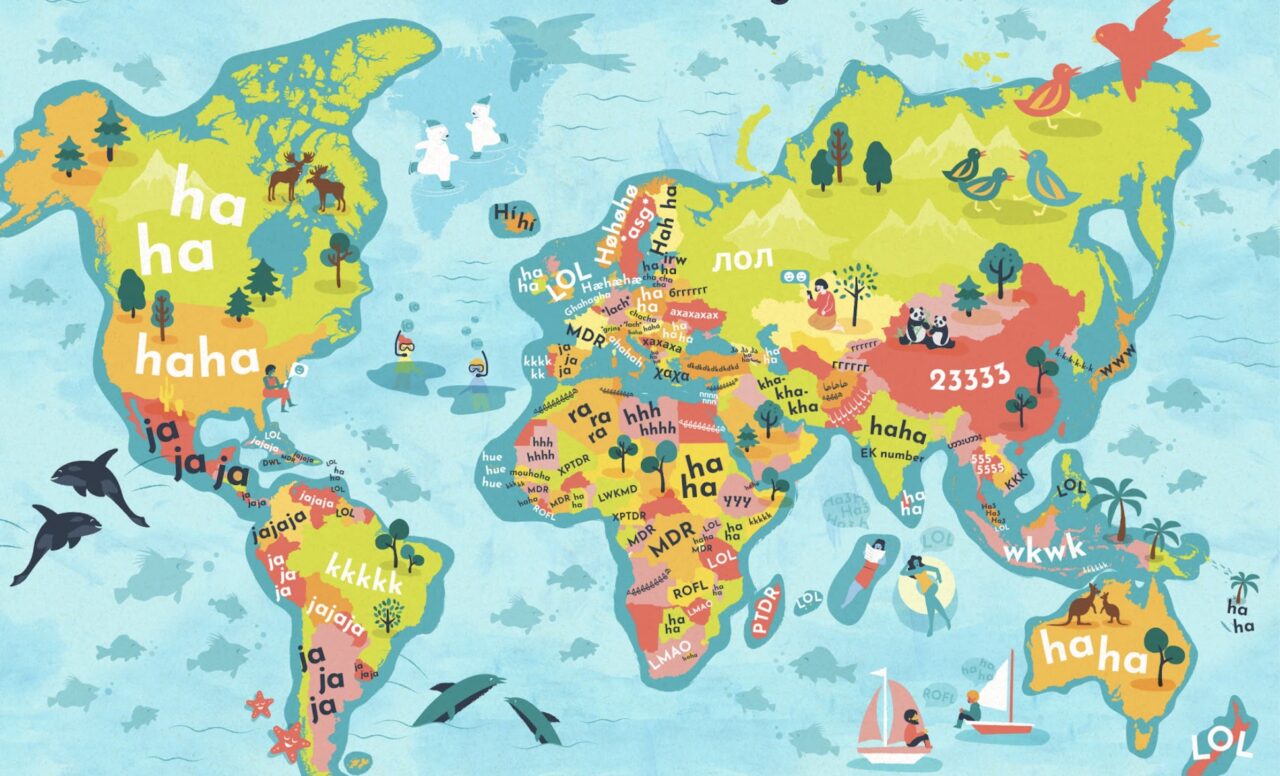
“A laugh will bury you” used to say an old saying, that’s why Preply teaches us to laugh in various languages of the world. After all, lLaughter is a universal gesture that translates into different languages, especially online. How can we not forget the “ihih“Of the times of MSN? And then the irresistible “haha”In which the more letters there are, the more there is a tendency to emphasize the hilarity of the moment. Those who have had to deal with Spanish users, on the other hand, know that Hispanic laughter is “LOLWhile few know that in Thailand people laugh by mercilessly spamming the number 5. The least misunderstanding is however LOLacronym for Lots of Laugh (literally “lots of laughs”) of British origin.
Preply teaches us to laugh in all languages of the world
- Thai: 55555 – In Thai, the graphic representation of online laughter is 55555. The reason is that the number 5 in Thai is pronounced haa. If the laughs are many, and of taste, the + sign will be added at the end: 55555555+.
- Mandarin Chinese: 23333 – In most of China, laughter is expressed using numbers: the “combination” is 23333. In Mandarin Chinese, the transcription of haha is 哈哈; while if you want to represent a malicious laugh, hehe is used, whose transcription is 呵呵 呵呵.
- French hihi o hey – In French, both onomatopoeia, such as héhé, hihi, hoho, or mouhaha for diabolical laughter, and abbreviations are used for laughter: the most common expression is MDR, acronym meaning Mort De Rire, Dead from Laughing. In other cases, the French use PTDR, or Pété de Rire, Piegato Dal Ridere, or XPTDR, Extrêmement Pété De Rire, which amplifies the previous meaning.
- No: haha o hehe but not only – The most widespread language of India identifies male laughter and female laughter: the former are haha, the latter are expressed with hehe. But there is an even more curious way of expressing fun, which does not make any gender distinction: to communicate a laugh in written form we use EK numer, which can be translated as For me is a number 1; EK, in Hindi, means one / 1.
- Japanese: www – In Japan the graphic form of online laughter is: the acronym www: be careful not to confuse it with the abbreviation of World Wide Web, which instead identifies the addresses of internet sites. In Japanese, in fact, the words laugh, warau / 笑 う, and smile, warai / 笑 い, both begin with w. After all, the W recalls the Japanese smile emoticon.

- German: haha o LOL – In German, haha and LOL are used indiscriminately. More typical is the use of asterisks to express laughter: * grins * translates as smile (and is sometimes abbreviated to * g *), similarly * lach * translates as laugh.
- Arabic: هههههه – Standard Arabic is the language that allows several countries – such as Egypt, United Arab Emirates, Morocco, Algeria, Tunisia – holders of their own dialect to communicate: the speakers of these countries, when they communicate in writing online, write هههههه and they pronounce hahaha.
- Spanish: jajaja – In Spanish the graphic representation of “standard” entertainment is jajaja, but there are other types of laughter: when this expresses irony, jejeje is used; if you want to convey malicious laughter, jijiji is used.
- Polish: haha - The Polish language has, especially among adolescents, two ways of expressing fun: Polish teenagers write the word Heheszki, which can be translated as kicking and laughing, to indicate great fun; more international and widespread is the use of haha.
- Estone: IRW – In Estonia, the abbreviation IRW is used as a graphic representation of fun: these three letters are the abbreviation of the Estonian verb irvitamina, which can be translated as laughing in a special way or smiling.
- Greco: λολ – According to the Greek alphabet, the English LOL is written λολ. More common, however, are the expressions χαχα, xaxa, which corresponds to haha, and χοχο, xoxo: the latter, preferred by the Greeks, indicates a sarcastic laugh. But be careful: in the Greek language xoxoxo also means kisses and hugs. Furthermore, Greek makes the difference between various types of laughter: a sneaky laugh is written χεχε, çeçe; a chuckle is χιχι, çiçi; a malicious laugh is written μπουχαχα, buxaxa. Finally, the expression χα0χα0χα0 is used as a mocking laugh, more or less the Italian equivalent of gnegnegne.














Leave a Reply
View Comments